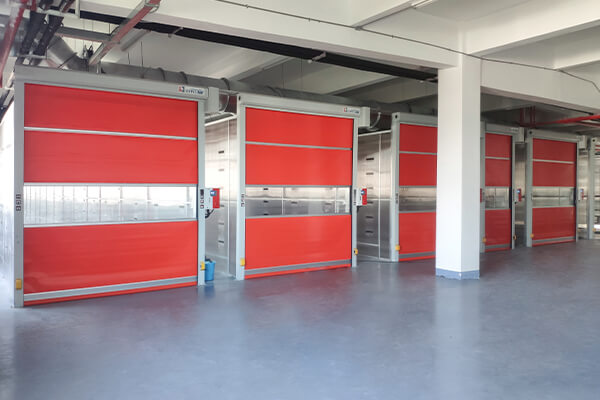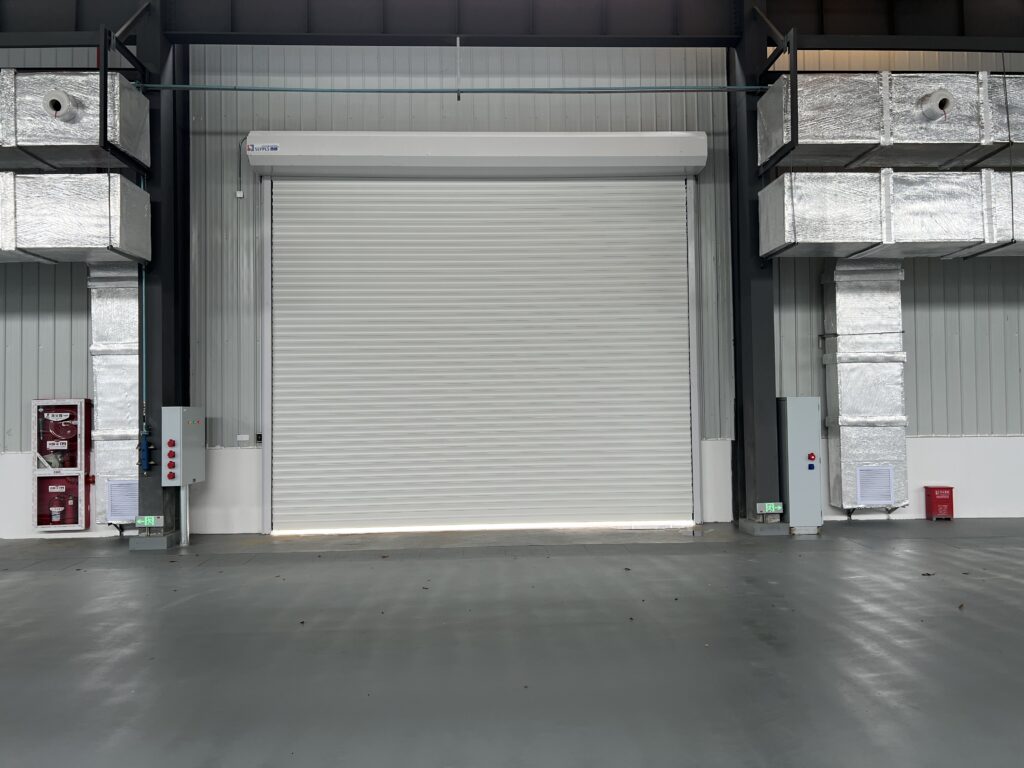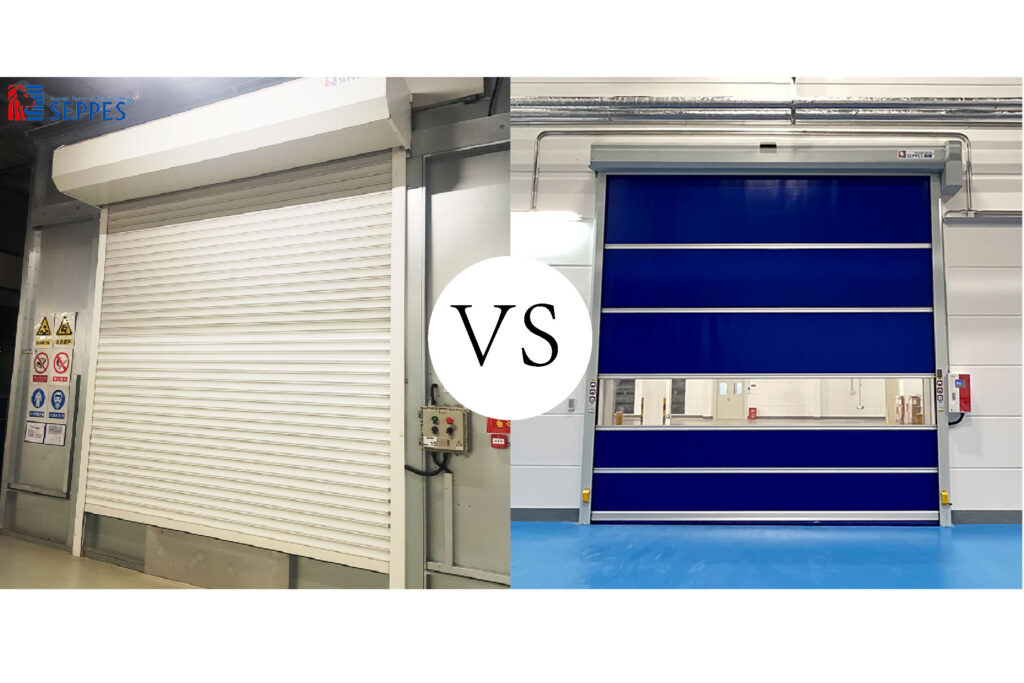In industrial and commercial environments, door curtains not only serve to separate areas and prevent dust and moisture, but also have a direct impact on energy efficiency, maintenance costs, and overall experience. This article examines the advantages and disadvantages of PVC door curtains and aluminum alloy door curtains, comparing industrial door curtain materials to help companies make informed decisions when purchasing.
PVC Door Curtains Advantages and Disadvantages

Advantages
Affordable
Low Cost: PVC door curtains are usually less expensive, making them suitable for businesses with limited budgets.
Simple maintenance: cleaning and replacement are more convenient, and the overall maintenance cost is low.
Good sealing
Dust and moisture resistance: PVC material has good waterproof and moisture resistance properties. Can effectively isolate dust and water vapor, suitable for food processing, warehousing, and other places with strict environmental requirements.
Sealing design: The door curtains are generally equipped with high-quality sealing strips to ensure a good sealing effect when closed and improve energy efficiency.
Lightweight and easy to install
Lightweightand: PVC door curtains are relatively lightweight, more convenient to install and modify, suitable for a variety of occasions.
A variety of colors: according to the corporate image and workshop layout choose the right color, and enhance the overall aesthetics.
Disadvantages
Weak weather resistance
Easy to aging: under long-term sunshine or extreme weather conditions. PVC door curtains may be aging, fading, or even cracking, affecting the aesthetics and function.
Temperature sensitive: under low-temperature environments, PVC door curtains may harden and reduce service life.
Limited impact resistance
Not suitable for high-intensity environments: in the face of heavy collisions or high-frequency collisions, PVC door curtains may not be as durable as metal, requiring regular inspection and maintenance.
Aluminum Alloy Door Curtain Advantages and Disadvantages

Advantages
High Durability
Strong Corrosion Resistance: aluminum alloy material has excellent corrosion resistance and is suitable for long-term use in environments such as humidity and high salt spray.
Solid structure: aluminum alloy door curtains are generally made of thicker material with high impact resistance, suitable for industrial heavy-duty scenarios.
Excellent physical properties
Wide temperature adaptability: Aluminum alloy door curtains are stable in high or low-temperature environments and are suitable for a variety of climatic conditions.
Aesthetics and robustness: with a polished and modern appearance. It is suitable for enhancing corporate image and is suitable for public facilities and high-end industrial applications.
Long-term cost savings
Long maintenance intervals: due to the durable material, aluminum door curtains generally require low maintenance, reducing repair and replacement costs in the long run.
Stability: For heavy loads and frequent opening and closing, aluminum door curtains can continue to operate efficiently and ensure smooth production processes.
Disadvantages
Higher cost
Large initial investment: aluminum alloy door curtains require a high material and manufacturing process. And the price is usually higher than that of PVC door curtains.
Strict installation requirements: heavier door bodies may require more complex installation and support systems, increasing construction difficulties.
Sealing performance relies on design
Seal selection is critical: although aluminum alloy itself is durable if not properly designed, the sealing performance may not be as good as PVC door curtains, which need to be supplemented by high-quality sealing strips.
Industrial door curtain material comparison: how to choose a more suitable door curtain?
When choosing industrial door curtains, enterprises should combine the actual use of the scene, budget, and long-term maintenance needs for a comprehensive comparison:
Scene applicability: if the main application is in the indoor, cost-sensitive and, more stable environment of the workshop or warehouse, PVC curtains are a good choice because of their economy and excellent sealing performance. And in high-intensity, y, wet, or corrosive environments, aluminum alloy curtains are more advantageous.
Frequency of use and durability: for the requirements of high-frequency switching and impact resistance occasions, aluminum alloy door curtains can provide a longer service life; for occasional use or limited cost budget scenarios, PVC door curtains can meet the basic needs.
Maintenance and replacement costs: PVC door curtains are simpler to maintain but easy to age. Aluminum alloy door curtains, although the initial investment is higher, the maintenance cycle is long, long-term use of lower costs.
Through the detailed comparison of industrial door curtain materials, enterprises can choose the most cost-effective industrial door curtain solutions according to their actual situation.
Conclusion
Both PVC and aluminum door curtains have their advantages and disadvantages. PVC door curtains offer a cost-effective solution for companies that need an economical. Easy-to-install While curtain that is suitable for mild environments. Aluminum alloy door curtains are undoubtedly a more robust choice for high-duty environments that require durability, impact resistance, and long maintenance intervals.
To ensure that the selection is scientific and meets the needs of specific applications. It is recommended that companies conduct a detailed assessment of the actual scenario before deciding to purchase. Through a comparative analysis of the advantages and disadvantages of PVC door curtains and aluminum alloy door curtains. You can find the most suitable door curtain products for your industrial environment, to ensure the optimal balance of production, safety, and efficiency.

